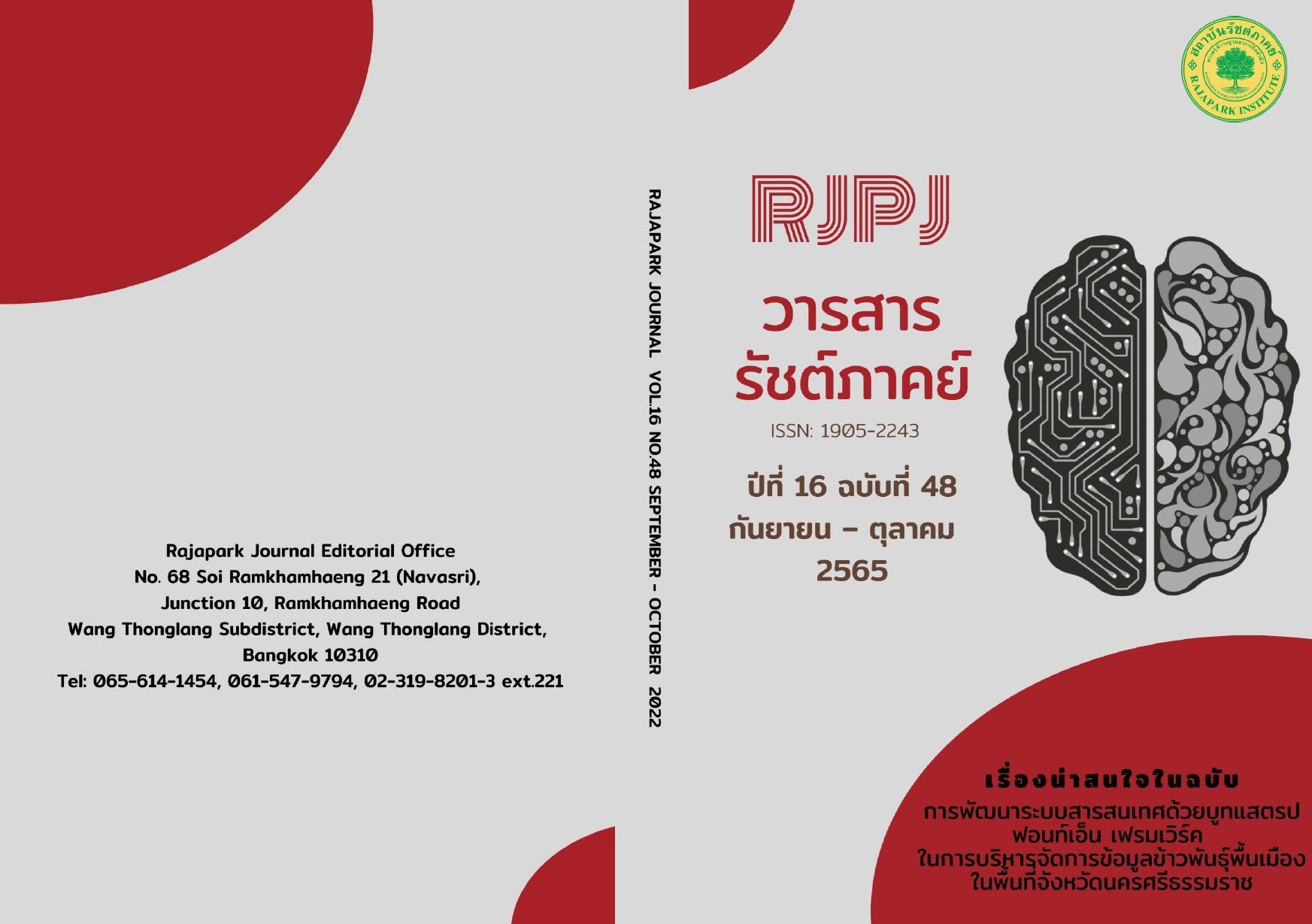The Study of Solutions for Solving the Status Problem in Autonomous Universities According to Legal Measures for Academic Freedom Protection
Main Article Content
Abstract
Lecturers in autonomous universities are in the relationship that under regulations, rules, announcements, orders or contracts set up by the university council, according to the law of university establishment. However, there is no central law or standard for protection that is not lower than the labor laws. This situation affects academic freedom of lecturers who must comply with their employment contracts in providing educational public services. This research aimed to study concepts, theories and laws that relate to the protection of academic freedom and the management of human resources, public services and good governance of autonomous universities. This qualitative research studied about legal measures for protecting academic freedom of lecturers in autonomous universities, both in Thailand and other countries, and then suggested solutions. The documentary research technique and research synthesis process were used. The results found that, according to the public law, autonomous universities in Thailand are legal entities. Their management process is independent without clear “guidelines” or “minimum standards” compared to other countries, where the status of lecturers is protected by standards and opportunities to participate in management process are given. Therefore, a central law to protect the status of lecturers in autonomous universities is needed in Thailand, in order to clarify legal measures for academic freedom protection.
Article Details

This work is licensed under a Creative Commons Attribution-NonCommercial-NoDerivatives 4.0 International License.
Views and opinions appearing in the Journal it is the responsibility of the author of the article, and does not constitute the view and responsibility of the editorial team.
References
Barendt, E.M. (2010). Academic Freedom and the Law: A Comparative Study. Hart Pub.
Burr, R. B. (1967). Management Development. In Robert L. Craig and Lester R. Bittel (Eds.), Training and Development Handbook. McGraw-Hill.
De Laubadere, A., & Venezia, J-C. (1997). Traité de droit administratif t.3 (6th ed.). L.G.D.J.
Grealy, L., & Laurie, T. (2017). Higher Degree Research by Numbers: Beyond the Critiques of Neo-liberalism. Higher Education Research & Development, 36(3), 458-471. DOI:10.1080/07294360.2017.1288710
Guglielmi, G. J. (1994). Introduction au droit des services publics. Droit et Société. https://www.persee.fr/docAsPDF/dreso_0769-3362_1995_num_ 29_1_1703_t1_0231_0000_2.pdf
Hénard, F., & Mitterle, A. (2010). Governance and Quality Guidelines in Higher Education. A Review on Governance Arrangements and Quality Assurance Guidelines. OECD. http://www.oecd.org/education/imhe/46064461.pdf
Kittleson, J. A. (2016). Luther the Reformer: The Story of the Man and His Career (2nd ed.). Fortress.
Kommers, D.P., & Miller, R. A. (2012) The Constitutional Jurisprudence of the Federal Republic of Germany (3rd ed., Revised and expanded). Duke University Press.
Lewis, D., & Sargeant, M. (2009). Essentials of Employment Law (10th ed.). Chartered Institute of Personnel and Development (CIPD).
Lockton, D.J. (1999). Employment Law. Macmillan International Higher Education.
Schimank, U. (2005). ‘New Public Management’ and the Academic Profession: Reflections on the German Situation. Minerva, 43, 361–376. https://doi.org/10.1007/s11024-005-2472-9
Searle, J.R. (1972). The Campus War: A Sympathetic Look at the University in Agony. Penguin.
Taylor, R. (2017). The Future of Employment Relation. (Swindon) Economic and Social Research Council. http//www.esrc.ac.uk_images/future_of_employment_relations_tcm8-13553.pdf
Weber, M., Gerth, H.H., & Mills, C.W., Eds. (1946). From Max Weber: Essays in Sociology; Oxford University Press.
Veit, F. (1937). Academic Freedom in Germany Before and After 1933 “Under the Republic of Weimar and under Hitler”. Peabody Journal of Education, 15(1), 36-44. https://www.jstor.org/stable/1487517


